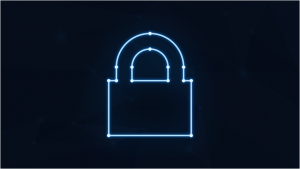PKI is a framework of encryption and cybersecurity that bridges the gap between the servers and the clients. Being the intermediaries between the communication, it holds the responsibility to authenticate the data being shared between the clients and the server.

Essentially, pki is the building block of the trust between the communication and offers a safe environment to verify and exchange data. PKI encrypts and decrypts data with the help of digital certificates. The digital certificates are documents created by the certificate authority and prove the integrity of the transaction.
Component Of Public Key Infrastructure
So, how does this PKI authentication work? To understand the function of the PKIs, you need to understand the three key components that play a major role.
- Digital Certificate.
- Certificate Authority.
- Registration Authority.
Digital Certificates
A digital certificate is like an electronic identification device for websites and organizations. These certificates secure the communication network between the server and users.
Certificate Authority
A certificate authority is used to authenticate the digital identities, ranging from individual users to computer systems and servers. In addition to that, Certificate Authority restricts any falsified authority entering into the system and manages the lifecycle of the digital certificates.
Registration Authority
The registration authority is authorized by the Certificate Authority with the power to allow digital certificates to the users. All the certificates that are created, revoked, or canceled are stored in the encrypted certificate database.
How Does PKI Provide Safety To An Organization?
A PKI solution can be created in-house or delivered by a third party as managed PKI services. PKIs have become one of the most important aspects of the business model today. Here are few ways in which PKIs offer safety to an organization
1. Hardware Security Model (HSM)
Managed PKI used a hardware security model. This model comes in the form of custom peripheral cards. Yes, parts of the HSM are expensive, but not a single thing is added here, which will be a waste of your money.
While looking for a PKI solution, you can go with an in-house PKI solution that comes with installation costs or Managed PKI solution that can be taken advantage of while your business grows.
2. Lifecycle Certificate Management
Managing several device identities is a complicated task. Hence, to maintain trust in the PKI, the managed services can carefully monitor the renewal process, usage, and misuse of digital certificates.
When the certificate is compromised, it can allow the hackers to take advantage of such a situation by infiltrating your database system. To restrict this from happening,k a managed PKI service maintains a Certificate Revocation List to identify and compromise certificates.
3. PKI Offer Secure Facilities And Protection From Insider Threats
The physical security used by the managed PKI service providers is an important issue for full-service certificate authorities. The process requires the use of different security systems to ensure managed PKI services providers keep cyber attackers at bay.
The security layers can include biometric authentication, data control access, and surveillance of internal-external areas.
4. Flexible Provision Option
A managed PKI service should be able to offer both factory provision and cloud-based provision. The factory binds a device identity during the whole manufacturing process via cryptographic keys in the factory provision. In addition to that, the security can be increased by limiting the data access to only a selected few members of the organization.
Future Of PKI
Today, PKI is considered an important part of business development. However, its complexity, coupled with its initial high installation cost, has discouraged many organizations from taking on the effort of completing the PKI in their business model.
However, the recent cyber attacks have made it clear that for the businesses that want to thrive online, PKIs are something must and non-negotiable. So, Is PKI here to stay? Well, it certainly seems that way.







